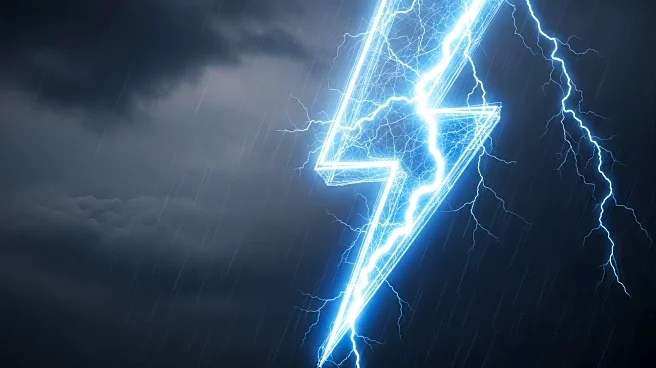What's Happening?
The Oklahoma City Thunder is gearing up for the 2025-26 NBA season, following a summer of celebration as reigning champions. The team is largely retaining its roster, positioning itself as a favorite to achieve back-to-back championships. Key players such as Shai Gilgeous-Alexander, Jalen Williams, and Chet Holmgren have signed contract extensions, ensuring the team's competitive edge remains strong. Among the players, Ousmane Dieng is highlighted as needing a fresh start elsewhere. Dieng, entering his fourth season, has struggled to secure a consistent role, playing only 1,339 minutes over his tenure. Despite showing potential as a backup forward, his lack of a contract extension suggests the Thunder may not see him as a long-term asset. The team is expected to utilize its entire roster throughout the season to maintain player freshness, potentially giving Dieng more playing time.
Why It's Important?
The Thunder's strategy to retain its core players while potentially moving Ousmane Dieng reflects a broader trend in the NBA where teams balance immediate success with long-term player development. Dieng's situation highlights the challenges faced by young players in championship-caliber teams, where opportunities can be limited due to depth and competition. His potential move could impact both his career trajectory and the Thunder's roster dynamics. For the Thunder, maintaining a strong roster is crucial for defending their title, while for Dieng, a fresh start could offer more playing time and development opportunities. This situation underscores the importance of strategic player management in professional sports, affecting team performance and individual careers.
What's Next?
As the Thunder prepares for the upcoming season, the focus will be on managing player workloads to ensure peak performance during the playoffs. Dieng's future with the team remains uncertain, with a potential trade likely by the deadline. Teams like the Charlotte Hornets and Washington Wizards could be interested in acquiring Dieng, offering him a chance to prove himself in a new environment. The Thunder's decision on Dieng will be closely watched, as it could influence their roster strategy and impact their championship defense. Meanwhile, Dieng's performance in any playing time he receives will be critical in determining his value to potential suitors.
Beyond the Headlines
Dieng's situation raises questions about the ethical considerations of player development in professional sports. Young athletes often face pressure to perform without guaranteed opportunities, which can affect their career growth and mental health. The Thunder's handling of Dieng's career could set a precedent for how teams manage similar situations, balancing the need for immediate success with the development of future talent. This scenario also highlights the cultural dynamics within sports teams, where individual aspirations must align with team goals, often requiring players to adapt to roles that may not fit their initial expectations.










